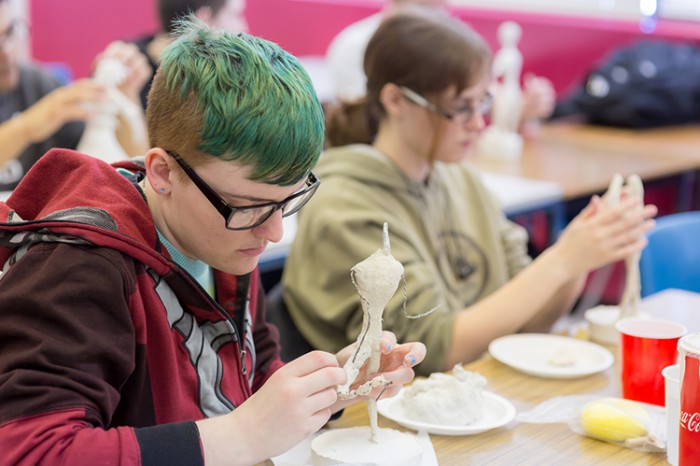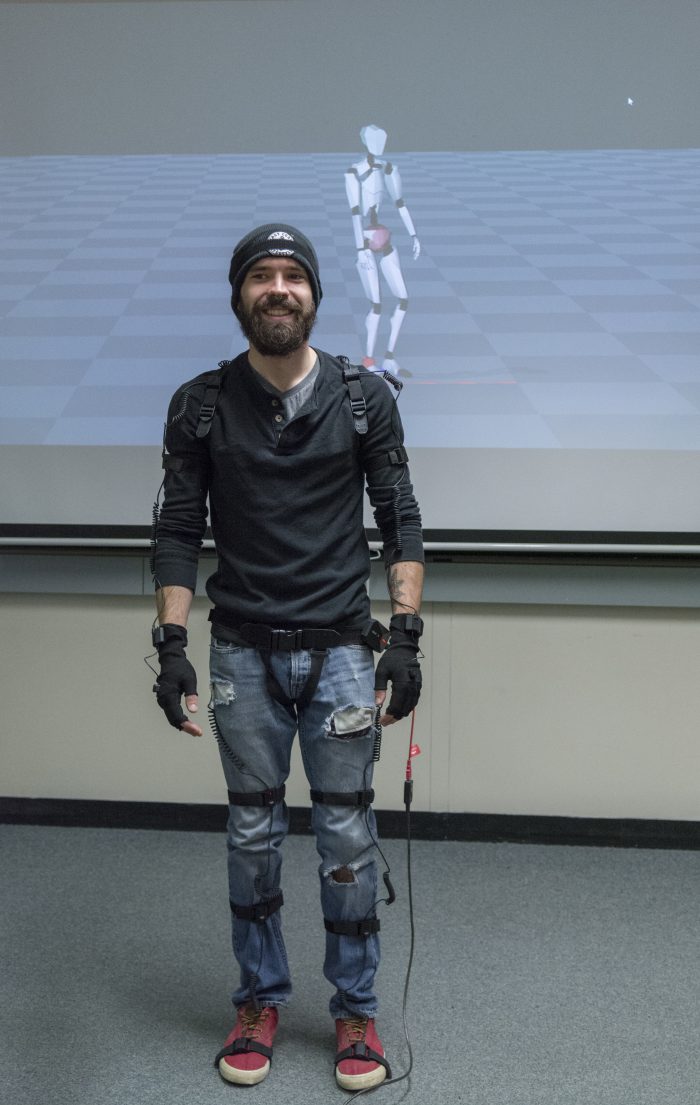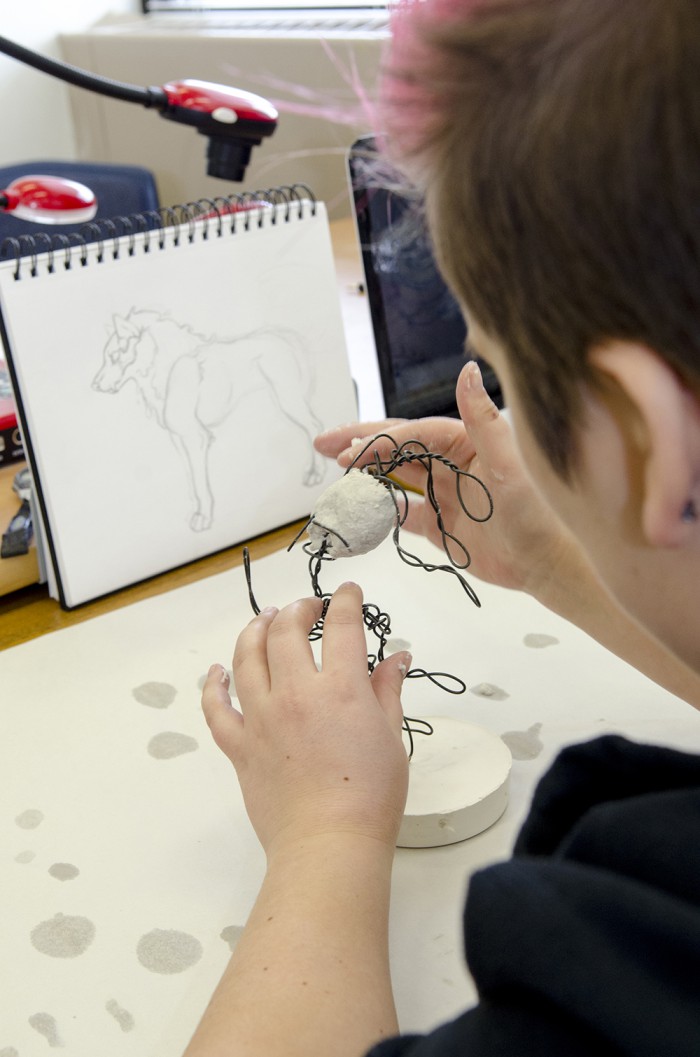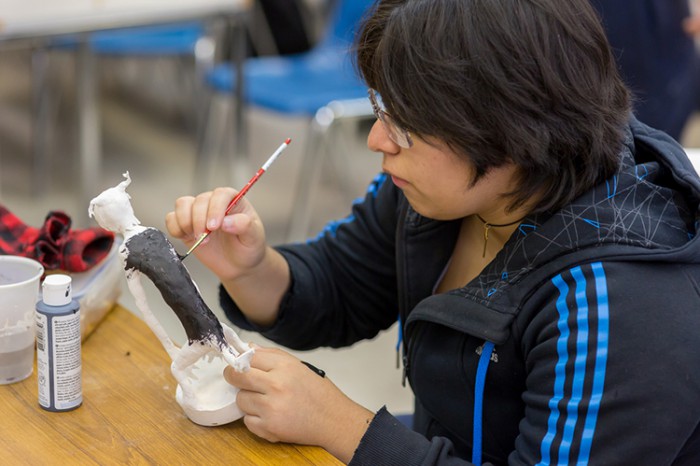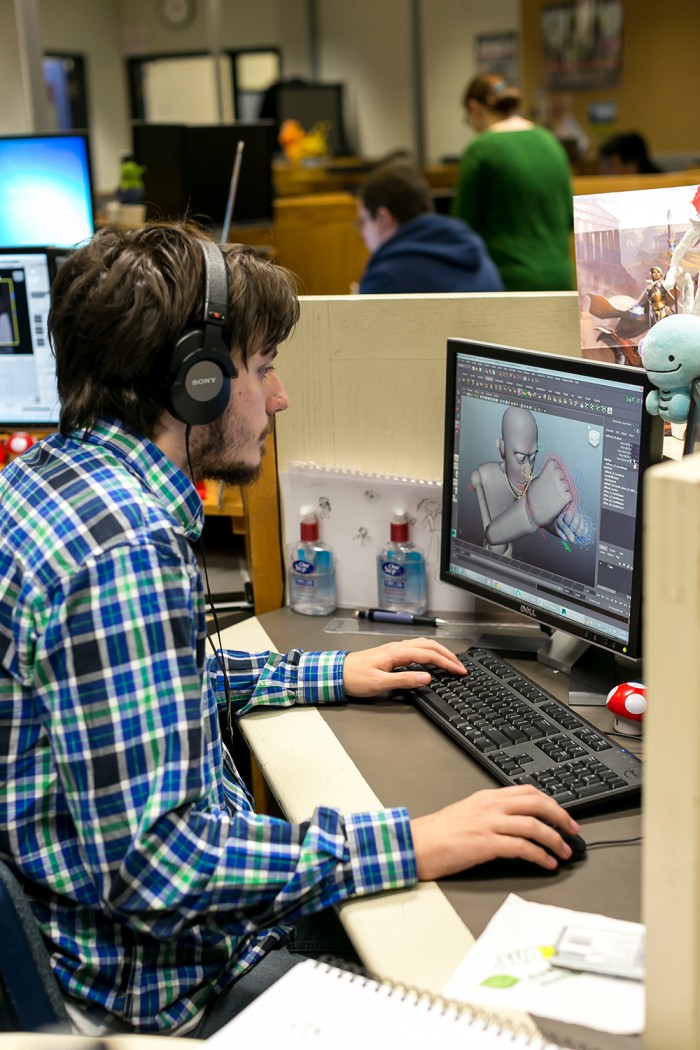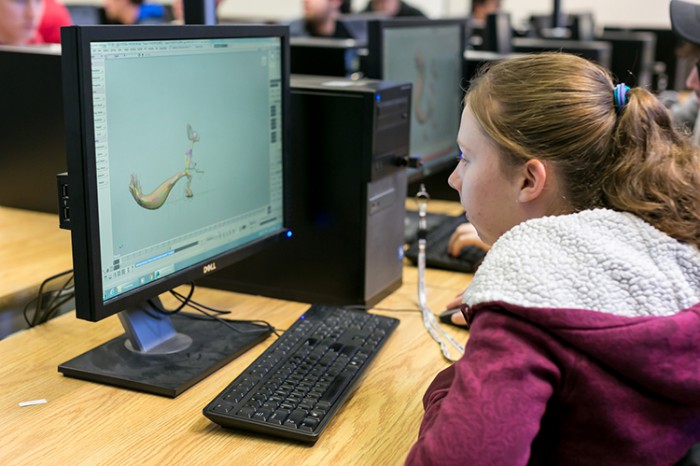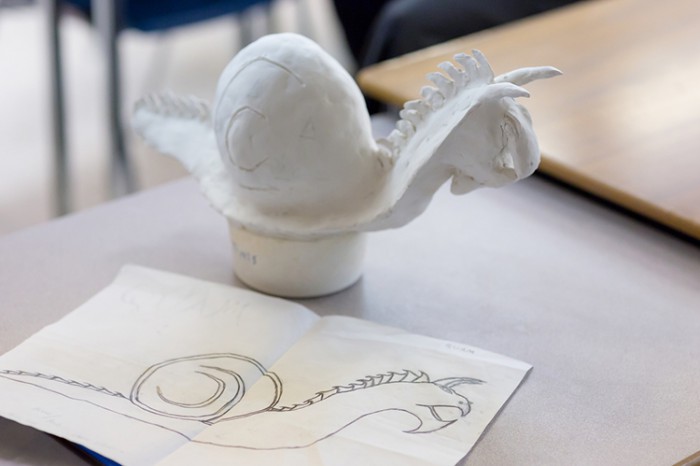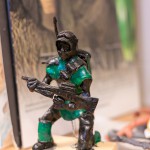Animation and Game Development
Available as a three-year program
- Credential
Three-year Ontario College Advanced Diploma
- Start Date
September entry
- Location
Belleville campus
Find your career
You could work in 2D and 3D computer animation, game design, game content creation, visual effects or web design and development.
- Positions include computer animators, CGI artists in the entertainment or game industry, media content providers, and web designers and developers.
- There is increasing demand for 3D artists in the architectural and industrial fields.
- Entry-level salaries in these industries vary from $35,000 to $39,999.* Senior animators and supervisors can earn $100,000 and higher.
- Entrepreneurship and communications training also prepare students for freelance work.
*Source: Employment Profile Provincial Report, Ministry of Training, Colleges and Universities.
Our grads get great jobs
- Technical Director, Nelvana
- 3D Artist, Jellyfish Pictures
- Compositor, Prime Focus Productions
- Game Development, Funcom
- 3D Artist, Arc Productions
- Mobile App Developer, BlackBerry Ltd.
Is it for you?
Students come to this program from artistic or technical backgrounds. What they have in common are:
- Artistic ability
- A vivid imagination
- Computer literacy
- A strong work ethic
Experiential learning
Gain a competitive edge in the job market with instruction in the entire range of the production process. Develop hands-on skills in our cutting-edge facilities featuring:
- The latest workstations and editing systems.
- A motion capture system.
- Leading industry software including Maya, Unreal 4 and the Adobe Master Suite.
- Tailor your studies in third year with independent production courses and a choice of streams in animation, visual effects or gaming.
- Get valuable on-the-job experience during a real world placement.
- You will finish the program with professional practices and job search skills, as well as an impressive portfolio of work.
Courses
- Semester One
- DIGP1014 Animation 1
- This course provides students with an introduction to the terms and concepts of animation in general and the history of animation. Students explore the 3D environment (simple modelling, materials, textures, lighting, animation and rendering), the mathematical concepts involved in the creation of animation and the production process
- DIGP1017 Audio/Video 1
- Proper understanding of audio and video elements and their usage is an essential part of the digital production workflow, whether the end result is used in broadcast, web or gaming applications. This course provides students with a technical foundation in AV, which will be applied as they progress through the program. Subjects covered will include: image acquisition, image processing, media file formats, CODECs, basic video editing, audio acquisition and manipulation, and graphics production as they relate to the digital AV workflow.
- COMM1057 Communications 1
- Good communication abilities are essential, both in college and in business. Using a combination of lectures, exercises, group discussions and assignments, students in this course develop their written and verbal skills in order to express themselves with clarity and creativity.
- DIGP1016 Digital Imagery
- Adobe Photoshop is integral to all three years of Animation. The basics and beyond will be covered in Digital Imaging. There will be an emphasis on learning Photoshop tools vital to animation, compositing and web building.
- DIGP1015 Game 1
- This course introduces students to gaming and game creation through the creative and functional planning stages, then development, and finally play testing. Topics covered include preparing graphics for sprites and backgrounds, sound and creating interactivity, navigation and publishing to mobile devices
- DIGP1019 Production Design 1
- Production Design will introduce how to reinforce the concept of a project through colour, lighting, composition, textures, choice of components, character style, typography, motion, illustration styles, camera angles, framing and more. The course also builds skills in conceptualizing and sketching, and will touch upon animation history and art direction styles.
- DIGP1020 Project Management 1
- For any project, planning is essential to a successful outcome. In this course, students learn how media projects, both large and small, are guided through the development process. Industry roles, concepts and workflows in animation, visual effects and gaming will be examined in order to give participants essential tools for planning and executing their own projects.
- DIGP1013 Web Authoring 1
- This course provides the learner with an introduction to HTML and the web environment. It includes web design principles, browser and mobile compatibility, image formats, accessibility and other design parameters. Photoshop and other graphic creation tools will be introduced. Layout, content creation and CSS are major components of this course. Students will be able to create hand coded pages for the web at the end of this course.
- GNED1100 Becoming a Global Changemaker
- This Loyalist College graduate attributes course will help shape your perspectives, broaden your understanding of important issues affecting our societies today, and equip you with invaluable knowledge and skills that will inform your ability to influence your community in a meaningful and impactful way. By exploring topics such as cultural competency, Indigenous education, entrepreneurship, sustainability, health and wellness, and ecological literacy, you'll be equipped with a powerful toolkit that extends far beyond the classroom.
- Semester Two
- DIGP1022 Animation 2
-
This course will introduce character design principles and intermediate animation concepts such as rigging, skinning/weight painting and animation tracks. Intermediate animation techniques will be employed to create useful animations for game and film. Students will be introduced to the basics of creating virtual environments for games and animation. Rendering, layers, composition, post-rendering FXs and other basic postproduction techniques will be introduced. Students will use various animation platforms to achieve a final animated product.
Prerequisite: DIGP 1014 - COMM1058 Communications 2
- In Communications 2, the emphasis is on visual communication. Beginning with the fundamental concepts of visual design and moving into theoretical concepts such as Gestalt principles and symbolism. Basic video editing concepts (i.e. compression of time/space, continuity, coverage, etc.) will also be introduced, including how editing is applied in cinematic storytelling and how it is used to persuade and manipulate audiences.
- DIGP1023 Game 2
- Using the Unreal Engine 4, this course focuses on 3D game creation. Students will create game levels and will learn and apply concepts of interactivity. Students will learn how to build, texture and light realistic game environments. Students will utilize visual scripting tools to enhance gameplay and to apply design tools and principles. Students will integrate 3D models and textures they create into game levels they produce.
- DIGP1026 Production Design 2
- Production Design 2 builds on the visual basics covered previously. There is a focus on 2D and 3D animation, visual design for websites and games, special effects and motion graphics. Students consider specifics such as developing conceptualizing abilities, research, strengthening skills in composition, sketching, typography, colour and digital illustration.
- DIGP1024 Programming 1
- This course will provide an introduction to programming basics and how they are used in the animation and game industry. To work in the animation/game industry an understanding of how programming works is very important. The course includes introductory programming, problem solving and logic. Pseudo code is used to give an understanding of logic and problem solving, and as a way to plan and execute programming tasks.
- DIGP1027 Project Management 2
-
In Project Management 2, participants continue to learn how media projects are carried to successful outcomes by looking at several case scenarios in detail. In anticipation of semester three and four group projects, students see the importance of working collaboratively and given strategies for ensuring successful collaborative ventures. Also included are the importance of contracts, schedules, budgets and deliverables for ensuring that projects come in on time and on budget.
Prerequisite: DIGP 1020 - DIGP1021 Web Authoring 2
-
This course provides an introduction to web authoring software applications. Using Adobe Creative Suite will be the major component of the course. Subjects include search engine optimization and using CSS for style, positioning and proper page layout. Web design principles are emphasized. Rich media content, responsive design and mobile content creation are introduced and the use of scripts is explored.
Prerequisite: DIGP 1013 - GNED General Education Elective
- General Education Courses
- Semester Three
- DIGP2001 Animation 3
-
Using various animation platforms, students will explore intermediate animation techniques such as expressions, advanced materials and shader techniques, surface and FX shaders, advanced texture mapping (UV mapping, 3D painting) and intermediate lighting (light matching, light shaders, radiosity, HDRI). Advanced camera techniques (camera matching, match moving, camera shaders) will also be considered. Students will be introduced to FX animation, physics, hard and soft body dynamics, collisions, hair cloth and particles. Emphasis will be put on creating animation cycles for use in game engines. Students will use pose thumbnails, in between drawings, arcs, and video referencing to generate natural and dynamic animations.
Prerequisite: DIGP 1022 - DIGP2003 Audio/ Video 2
-
This course covers advanced AV topics including online editing, advanced character generation and motion graphics, and audio editing, mixing techniques and sound design. Students will be encouraged to use concepts and software in this course to create material for their personal portfolios and other projects.
Prerequisite: DIGP 1017 - DIGP2005 Digital Compositing
- Digital compositing is the layering of images from various sources and formats to create a finished image. This course will use timeline-based and node-based compositing software to demonstrate various compositing techniques, including basic layering and compositing, colour and alpha keying, advanced matte extraction, media matching (noise, camera match/moving, film grain and colour lighting/matching), image-based operations, (filtration, colour-correction, morphing/warping, etc.).
- DIGP2002 Game 3
-
This course uses Unreal Engine 4 to apply game design principles and to create interactive environments. The course emphasizes game content creation using Maya and Photoshop. Models are created and animated in Maya which are then incorporated in Game Levels the students produce. Scripting and game design concepts such as physics, UVs, normal maps, particles, triggers and artificial intelligence will also form important elements of the course. The course includes discussions on game design and what makes games successful. Other concepts include game textures, lighting, weapons and testing.
Prerequisite: DIGP 1023 - DIGP2013 New Media Production 1
-
This course emphasizes project planning and the production pipeline for a year long group project. Students will plan, storyboard, template and budget a major project. The projects developed this term will be completed in Winter session. In this course adherence to timelines, professional conduct, quality of work, meetings, communication and deadlines are crucial.
Students use all concepts learned to date and apply them to their group project. - DIGP2006 Production Design 3
- This course further builds on the theory and practice covered previously and focuses on art direction in 2D and 3D animation, visual design for websites and games, special effects and motion graphics. To build a strong frame of reference, the class will view and deconstruct the industry’s best. The class will also do assignments in sketching, art history and maquettes/character development. Students work collaboratively on a group project and focus on project development, including concept, overall look and art direction style, completing animatics and incorporating feedback from faculty and student colleagues into their project.
- DIGP2004 Programming 2
-
Students will learn advanced scripting for game applications and animation. Students will use Python to understand programming principles. Students will incorporate models and scripts created in Maya to create functioning animations. Students will apply concepts to create code which will control in-game elements and create animation sequences.
Prerequisite: DIGP 1024 - DIGP2000 Web Authoring 3
- Students will create rich media content for the web. This course will cover drawing, basic animation, importing, exporting, audio, video, interactive navigation and content creation. Students learn the fundamentals of good web design using interactive media content. This course also includes information on file compression, vector graphics, symbols, libraries and ActionScript.
- Semester Four
- DIGP2008 Animation 4
-
Using various 3D animation software platforms, students will explore advanced character modelling and animation techniques. Special emphasis will be placed on creating photorealistic characters in ZBrush and Maya as well as facial animation and lip-synch. Students will learn to produce motion capture files using MOCAP and integrate them into Maya and Unreal Engine 4 using Motion Builder. Emphasis will be placed on developing industry ready character animation skills. Other topics include creating character, model, texture and animation content for games. Students will use content produced in this course for the Unreal game levels created in relative courses.
Prerequisite: DIGP 2001 - DIGP2014 Character Design 1
- This course helps students create believable characters for cinema and game. Building on earlier courses, Character Design advances the study and development of characters from concept to completion. Students improve their skills in character design, acting, character motivation and visual storytelling through performance. There is a strong emphasis on performance and acting for animation and game.
- DIGP2009 Game 4
- In this course students design a game from the ground up and document the design. Everything from idea to concept art, characters, level design, story, and supporting game development documents to researching the game market and game testing. Other topics include game engines, game genre types, storytelling and interface design. Students will understand how to test games, give feedback and use feedback to enhance game products. As part of the development process the Unreal engine will be used to emphasize certain design principles.
- DIGP2011 New Media Production 2
-
This course emphasizes a team approach to project planning. Students learn to plan, storyboard, template and create a major project. The group project developed last term will be completed this term. In this course adherence to timelines, professional conduct, quality of work, meetings, communication and deadlines are emphasized. Project completion, production workflow and presentation are major components of the final mark. In this course students will use all the concepts learned to date and apply them to their group work.
Prerequisite: DIGP 2001 or DIGP 2006 or DIGP 2002 or DIGP 2013 - DIGP2012 Production Design 4
- Production Design 4 builds on all previous courses and delves deeper into human and creature anatomy, character design, 2D animation, world building and concept art using a variety of tools and techniques. Typography and design will also be explored in greater depth this semester, with a focus on branding of final projects.
- DIGP2007 Web Authoring 4
-
This course will move into more advanced programming using ActionScript. Fundamental programming concepts will be studied. Students will build interactive questionnaires, control complex animation, load external movies and sound files, create a jukebox, build a preloader that displays percentage loaded, apply advanced sound, sync sound, create moveable windows, sliding menu drawers, scrolling text boxes, and controlling video.Students will learn outputting and publishing with HTML and be able to apply Flash Detect features. They will discover how to design larger scale titles using a modular approach. Students will learn how to develop a design strategy.
Prerequisite: DIGP 2000 - GNED General Education Elective
- General Education Courses
- Semester Five
- DIGP3001 Animation 5
-
In this course, students will create advanced portfolio pieces that demonstrate their mastery of character design, architectural/mechanical, modelling, VFX, lighting and animation. Students will be able create industry-ready work for use in game or feature film and produce several highly finished, photorealistic, animated pieces for use in their final projects and their demo reels.
Prerequisite: DIGP 2008 - COMM3003 Communications 3
- This course explores verbal, non-verbal and written communication skills in the creator’s professional environment. Explorations include building listening and speaking skills; conducting and being a helpful part of business meetings; responsible client management; creative presentations and selling ideas; and becoming aware of professional conduct. Our skills will be acquired through discussions, observations of self and others, presentations, role-playing exercises and assignments.
- DIGP3003 Independent Production 1
-
This course will emphasize individual approach to project planning. Students will plan, storyboard, template and price out a major project. The project developed this term will be a personal portfolio piece. In this course, students will use all concepts learned to date and commence work on a video game for Unreal Engine 4, website or a short animated film.
Prerequisite: DIGP 2011 - DIGP3005 Production Design 5
- Using the techniques learned in previous Production Design courses, students act as art directors for their final projects. A collaborative approach will be used in this course to generate a final project for the student’s choice of an animation; a video game with original material; a live action/special effects piece; or three fully functioning websites with e-commerce capabilities. The student will focus on developing the look and feel for this project.
- Semester Five (Elective Group 1 )
- DIGP3011 Animation Master
-
This course allows the specializing student to learn advanced camera, lighting, shading and rendering techniques. Emphasis will be placed on integrating CGI elements into live action backgrounds using camera tracking and advanced compositing techniques. Students will learn advanced facial animation techniques as well advanced rigging, muscle control, anatomy, advanced motion capture and advanced character animation. Emphasis is place on acting and performance, in order to create highly evocative and realistic character animations.
Students will learn to create advanced particle and other VFX effects, as well as crowd simulation.
Co-requisite: DIGP 3003 - DIGP3012 Game Master
-
This course helps students to better understand the game industry in which they are seeking employment. Students participate in advanced discussions of the game studio environment and the game production pipeline from concept to design, model and art creation, level building, compiling and marketing the finished product. The course will cover moral, ethical and psychological aspects of games and game play. Much of the course will focus on the students’ major productions, providing them with directed content and one-on-one consultation.
Co-requisite: DIGP 3003 - DIGP3013 Web Master
-
Building on an intermediate knowledge of web development, students are encouraged to move into an advanced path in web development. As a result of exploring/researching current web trends and through consultation, students will be expected to present a proposal for a project focusing on a specific web technology or system. This will be manifested through presentations and a project. Some possible avenues of discovery include, but are not limited to, content management systems such as Joomla, e-commerce and security systems, social networking software, rich media content delivery and management, advanced Flash development, ActionScript 3.0, XML, PHP, mySQL, Flex and mobile content delivery (iPhone, Blackberry).
Co-requisite: DIGP 3003 - Notes
- Select 1 courses from above
- Semester Six
- DIGP3017 Character Design 2
- In this course, students create believable characters for next-generation game engines and animated films. Building on earlier courses, Character Design 2 masters the study and development of characters from concept to completion. Students intensively hone their skills in character design, acting, character motivation and visual storytelling through repeated performance. There is a strong emphasis on production-quality animation for film and game.
- WKPL3006 Field Placement
- This four-week field placement is intended to provide the student with direct work experience within the student’s area of specialization. This 140-hour placement will allow students to gain specific experience and to be integrated in a work team.
- PROF3003 Field Placement Preparation
- In this course, students learn the latest methods and best practises on how to establish and nurture business relationships. They will learn what is expected in the industry and how to get an edge on the competition through research exercises and the building of collateral. Students will learn job search techniques and create materials needed to land employment upon graduation. Students will develop a new media portfolio designed to assist in their internships and eventual job placement. The portfolios will demonstrate their understanding of all elements of the program.
- DIGP3009 Independent Production 2
-
This course is a continuation of Independent Production 1 and will emphasize project planning and production. Students are allowed time to produce content for their major third-year production/portfolio piece. In this course, students use all concepts learned to date and finish their major project, which may be a video game mod, a series of websites or a short animated film.
Prerequisite: DIGP 3003, DIGP 3001, DIGP 3005, ( DIGP 3011 or DIGP 3012 or DIGP 3013 )
Co-requisite: DIGP 3007 - DIGP3007 New Media Production 3
-
Students use all the skills they have acquired to complete a final new-media-based project. Aspects of this course will focus on design and art direction for the student’s major individual project for their demo reel, as well as a self-promotional website. The ultimate goal is to conceive and produce a consistent visual presentation for their demo reel. The other component of this course will focus on the production process to create the major project and the promotional materials including timelines and adherence to production schedules.
Prerequisite: DIGP 3003, DIGP 3001, DIGP 3005, ( DIGP 3011 or DIGP 3012 or DIGP 3013 )
Co-requisite: DIGP 3009
*Courses subject to change.
Turn your diploma into a degree
Many universities across Canada and abroad will provide credit recognition for your diploma studies at Loyalist College. The following is a list of agreements that are currently in place. There are many more options, and new agreements are added annually. Contact your university of choice to make individual arrangements. Click here for more information about university transfer agreements.
- Algoma University – B.A.; B.B.A.; B.Sc.; Bach. Computer Science
- Brock University – various*
- Davenport University – B.A. Computer Information Systems – Computer Gaming and Simulation; B.A. Technology Management – Global IT Project Management
- Griffith University – Bachelor of Digital Media or Bachelor of Multimedia
- Institute of Technology Tralee – Bachelor of Arts (Honours) in Animation, Visual Effects and Motion Design (Year 4)
- Lakehead University – various*
- Laurentian University – various*
- Laurier Brantford – any honours program
- Limerick Institute of Technology – Bachelor of Science (Honours) in Games Design and Development (Year 4)
- Nipissing University – various*
- Queen's University – various*
- Ryerson University – various*
- Seneca College – Bach. Interdisciplinary Studies
- Ontario Tech University – Bachelor of Information Technology (Honours), Game Development and Entrepreneurship; B.A. Adult Education and Digital Technology; Commerce Bridge
- Univeristy of Waterloo – various*
- University of Windsor – various*
- Western University – various*
- Wilfrid Laurier University – various*
- York University – various*
*Various potential degree pathways. Please confirm details with the receiving institution.
York University's Consecutive Bachelor of Education in Technological Education
Eligible Animation diploma graduates have the opportunity to enter York University's Consecutive Bachelor of Education (BEd) in Technological Education program.
Post-grad at Loyalist
- Earn a double diploma in another College program, in as little as two semesters
- Specialize with a post-graduate certificate in Public Relations – Event Management
Study abroad
Explore opportunities to continue your studies in Ireland:
Autodesk certification
Students are eligible to challenge the Autodesk certification exams at Loyalist College. Completing these industry-recognized credentials enables students to highlight that they have the in-demand skills employers are seeking.
How much will it cost?
Approximate costs (2024 – 25)
- Domestic Tuition: $2,722.08
- Full-Time Ancillary Fees:* $1,367
- Total: $4,089.08
Additional costs, such as supplies, travel and parking, may be incurred during workplace visits, etc.
*Fees related to programs that are less than or greater than two semesters will be adjusted accordingly. Fees are subject to change. Please visit the Tuition and Fees web page for a list of the many services, activities and items included within the ancillary fees, and the related policies.
Bursaries and financial assistance
Loyalist College has a number of scholarships, bursaries and academic awards available to students. Our Financial Aid Office can help you explore your options, or assist you with a student loan.
Admission requirements
Required academic preparation
- OSSD/OSSGD or equivalent with courses at the general, advanced, (C), (U) or (M) level, AND
- Grade 12 English (C) level or equivalent
OR
Recommended academic preparation
- Communications technology, IT and computer literacy, media arts, fine arts, presentation techniques.
Prior learning assessment and recognition
Applicants with work experiences or other types of non-credentialed learning may be eligible for credits at Loyalist. Graded credits (as opposed to exemptions) are granted. Click here for more information about our assessment and credit challenge process.
International students
Click here for information about how to apply, international student fees and more.
Campus News
Loyalist Graduate Embraces Animation Career
 “When I was two years old my mom would find me watching cartoons and drawing TV characters in the middle of the night," says Loyalist College graduate Karen Wood. "I’ve loved animation for as lo... Read More
“When I was two years old my mom would find me watching cartoons and drawing TV characters in the middle of the night," says Loyalist College graduate Karen Wood. "I’ve loved animation for as lo... Read More
Loyalist College Receives Recognition Through BEAC

The Broadcast Educators Association of Canada (BEAC) presented the 2011 National Awards at the annual conference in Victoria, BC on May 28th. Media students from colleges and universities across Cana... Read More
Animation Students Receive Praise from Industry Giant Tim Burton
 Thirty third-year Animation students from Loyalist College visited the TIFF Bell Lightbox, new home of the Toronto International Film Festival, on November 23rd in support of four classmates who were ... Read More
Thirty third-year Animation students from Loyalist College visited the TIFF Bell Lightbox, new home of the Toronto International Film Festival, on November 23rd in support of four classmates who were ... Read More
Animation Students Experience Career Opportunities Beyond Cartooning a...
 When Tom Kirk, a third-year Animation student at Loyalist College, entered the program he admits to only visualizing the cool 3D cartoons and pictures he would be creating. Then his professor, Geoff D... Read More
When Tom Kirk, a third-year Animation student at Loyalist College, entered the program he admits to only visualizing the cool 3D cartoons and pictures he would be creating. Then his professor, Geoff D... Read More
MoCap Studio Adds New Dimension to Loyalist Animation Program
 Students in the Loyalist College Animation program are adding a new skill set to their resumes with the experience they are gaining through the use of a Motion Capture studio, known as MoCap within th... Read More
Students in the Loyalist College Animation program are adding a new skill set to their resumes with the experience they are gaining through the use of a Motion Capture studio, known as MoCap within th... Read More
In the News
Archeologists go gaming
 London Free Press
London Free Press
Opening Day
 Three students from Loyalist’s Animation program were selected to participate in a Master Class with world-renowned animator Tim Burton in November 2010. The three students – Theo Wolff, Alex Bosch and Mark Schuenemann – were chosen based on their animation Opening Day, created during their second year of the program.
Three students from Loyalist’s Animation program were selected to participate in a Master Class with world-renowned animator Tim Burton in November 2010. The three students – Theo Wolff, Alex Bosch and Mark Schuenemann – were chosen based on their animation Opening Day, created during their second year of the program.
Perception
 Perception is another film by Theodor Wolff we have been submitting to Student Showcases. This film is about American Sign Language and how deaf people are perceived.
Perception is another film by Theodor Wolff we have been submitting to Student Showcases. This film is about American Sign Language and how deaf people are perceived.
Forever
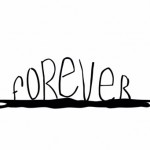 This film by Emma Courtney won first prize in the Animation category at the 2011 BEAC awards. BEAC is the Broadcast Educators Association of Canada, a national organization dedicated to promoting excellence in media education. Forever is the story of a little girl who has been abandoned by the adults who promised to love her forever.
This film by Emma Courtney won first prize in the Animation category at the 2011 BEAC awards. BEAC is the Broadcast Educators Association of Canada, a national organization dedicated to promoting excellence in media education. Forever is the story of a little girl who has been abandoned by the adults who promised to love her forever.
Our process ...
Students build models by hand for their 3D renderings as one step in the 3D creation process.





